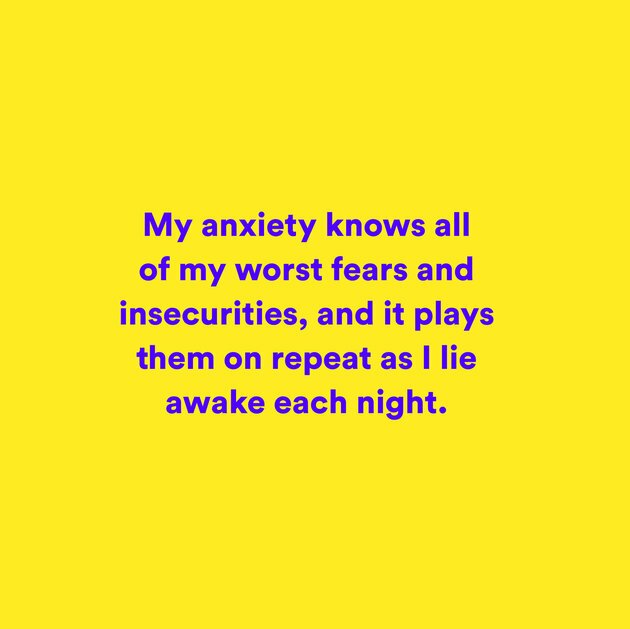NAME: Dior Vargas
Dior Vargas is a creator of a People of Color and Mental Illness Photo Project. Dior Vargas
AGE: 28
HERITAGE: Ecuadorian, Puerto Rican and Italian
HOMETOWN: Born and lifted in New York City
OCCUPATION/TITLE: Latina Feminist Mental Health Activist
Dior Vargas is a creator of a People of Color and Mental Illness Photo Project, a response to a invisibility of people of tone in media representations of mental illness. She is a proffer predicament advisor for CrisisTextLine, a co-facilitator for NAMI NYC Metro’s Young Adult Support Group and was listed as one of the
15 Remarkable Women of Color Who Rocked 2015 in Colorlines.
At what indicate in life did your concentration on advocacy start holding shape?
I dealt with mental health issues many of my life though it was when we was in high propagandize that we started meditative that we wanted to be an activist, to organize, to protest. we remember people not articulate about their pain, minorities generally and Latino communities for certain weren’t articulate plainly about a issues so we wanted to share that partial of me.
Does it take a lot of convincing for Latinos to trust that it’s OK to wish things to be better?
I was articulate with someone yesterday about how people of tone feel they’re not estimable of receiving help. They cruise going to a therapist for assistance is a absolved thing, that they can take caring of it themselves. Why do we feel that we don’t merit help? A lot of people see others, like their ancestors before them or even stream family members, who have had dire practice in a past, internalized shame or other issues and they’re removing by. They think, “They’re removing their day-to-day tasks done, so since can’t I?”
Confronting fears about seeking assistance from other people takes a lot of time and energy. But we have to try to proportion it to other things. For instance, if we got burned, we wouldn’t contend ‘I don’t merit to get assistance for that wound,’ right? So there’s a lot of reframing…And then, of course, there’s a emanate of navigating a mental health complement and during that indicate we competence give adult and only say, “Never mind.”
What are some special hurdles to diagnosis that Latinos face, that maybe some other races and ethnicities don’t contend with?
There is this tragedy between carrying your family be a vital partial of your support network though afterwards also maybe not carrying adequate space. The energetic of a Latino family is customarily impassioned alliance – and a clarity of shame if we aren’t super close, so that’s a lot of pressure. Sometimes they competence wish to know, in detail, what medicine you’re holding or what we talked about with your therapist.
Another thing is progressing boundaries. You competence wish to speak about therapy – or we competence not, so we have to collect and select what we wish to share. Your time with your therapist is yours and it’s cherished, so infrequently we have to set bounds and people can get really romantic about that since they wish to be supportive. It’s hard, though we only have to say, “I caring about we and my contentment and peculiarity of life, I’m doing this since we wish things to be better.”
There is a lot of plain investigate display that a Latino village does not speak about mental health. And a lot of anecdotal justification that Latinos cite to keep a unbending top mouth about issues like depression, anxiety, mood disorders, even insanity in a comparison population. Did we worry that we would be stigmatized by articulate about this banned subject?
It was not easy. There was some insecurity, doubt and even some backlash, though we kept reminding myself that immature people, women, Latinos who live with these issues are silenced and feel unheard. So all those things that disturbed me were diminutive compared to what we could accomplish for people who are isolated, vexed or feeling destroyed and incompetent to speak with anyone about it.
RELATED:
Latina Teens, Suicide Attempts And Mental Health ‘Secretos’
What’s your recommendation to those who wish to inspire someone to strech out for a assistance they need?
It’s tough not to sound cheesy when we say: You merit caring and merit love, honour and understanding. You merit help, we merit to go see someone to assistance we get a life that we want. There’s this origin of pain and pang in some Latino families and a lot of people who didn’t get that help. And is that a peculiarity of a life we wish to live? Yes, there will be people who contend “I don’t know how to navigate a system,” or “I’m only old-fashioned,” or “It will be a rubbish of time,” though cruise of a kind of suggestive life we can have if we mangle that cycle of overpower and take caring of yourself.
A lot of Latinos wish their children to live a improved life than they had, though what does that demeanour like? Not in terms of only money, kids, career or a home – we can’t have that good life though mental health. You wish to be means to demeanour behind during life and say, “I did all we could for my mental health, we took caring of myself.” we only know so many people, so many families suffering, carrying pain and they cruise that’s normal. But it’s not OK – we don’t know anyone that wants that for themselves or their kids.
What about your family? Are they supportive?
They are, though I’ve schooled that it takes a really courteous proceed to do this work so publicly and still respect your family. In 2014 we was interviewed for an essay about Latinas and high self-murder rates in a high-profile magazine. we was intensely vehement about being in a repository and reaching people I’d differently not be means to and we was really vehement about my experience. When a essay came out, some of what we had pronounced didn’t come out in a approach that we had wanted it to and it harm my mom. we had to cruise questions about a line between being honest about my knowledge and “airing unwashed laundry” and how to stay loyal to my family, a people we love, though spiteful them. That said, my mom is my biggest believer and intensely ardent about this partial of my identity.
Esther J. Cepeda is a Chicago-based publisher and a nationally syndicated columnist for The Washington Post Writers Group. Follow her on Twitter, @estherjcepeda.
Follow NBC News Latino on
Facebook, Twitter and Instagram.
This entrance upheld by a Full-Text RSS use – if this is your calm and you’re reading it on someone else’s site, greatfully review a FAQ during fivefilters.org/content-only/faq.php#publishers.





